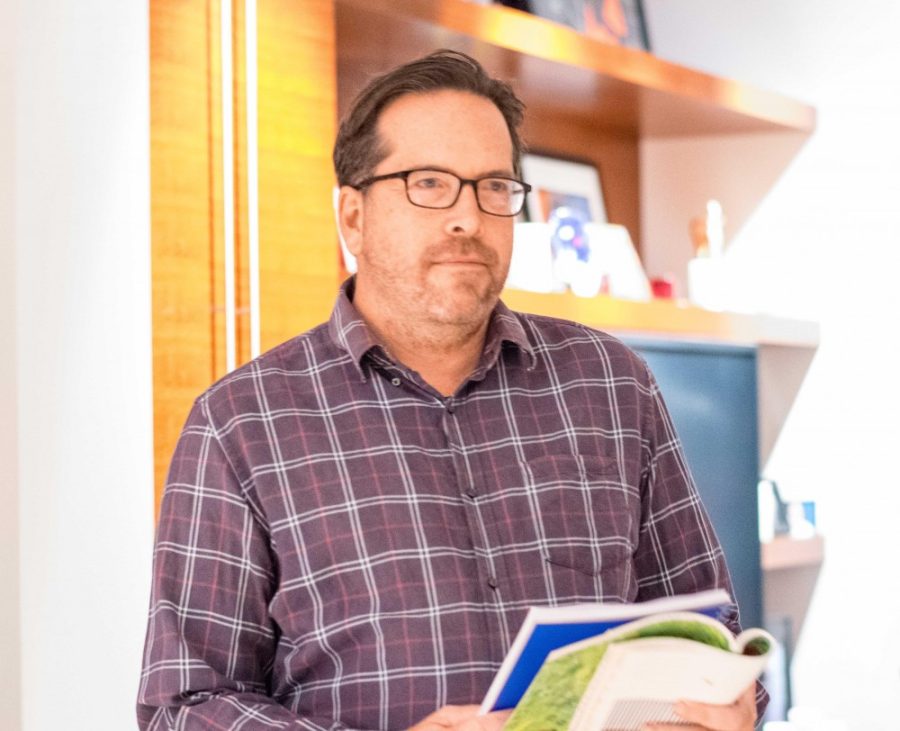Daily Wildcat: What got you into journalism? How long have you been a journalist?
Todd Miller: I have been a journalist full-time for more or less 10 years, though I’ve been at it for a long time. The first thing I published as a journalist was not a written piece, which has been the brunt of my work, but a photo of the U.S. Army Corps of Engineers constructing the border wall in Douglas, Arizona in 1999. Over the years, I learned that there were many important stories out there to tell, many not getting adequate coverage. In 2008, I started writing articles about the drug war and economic situations in southern Mexico, where I lived at the time, and in 2014, my first book “Border Patrol Nation” was published.
DW: How do you start the process; how do you write that first page?
RELATED: Student Unions’ plantED Culinary Workshop series returns
TM: For me doing the interviews, research, visiting places generally results in hundreds of pages of field notes. In this usually comes the foundation for the book or feature article. I write long-form journalism, like that first lump of clay in front of a sculptor. When it comes to the first page, I find it’s important to allow yourself to “vomit,” as one person comically put it to me, out a draft. And then the magic happens in the revision.
DW: What is your favorite part of the process?
TM: I actually like all parts of the process: the research phase, because you get to travel and talk to all kinds of interesting people; the writing phase, because it is exciting to put the piece together, figure out what stories, quotes and people you will include; and ultimately the formulation of the important points that you will drive home. Often for me, journalism is an act of discovery. I even like revision, where I think much of the writing happens, especially its craft.
DW: What has been your favorite project and why?
TM: With “Storming the Wall,” one of the places I visited was the Philippines and the island where my grandmother is from. I also did research in Central America on the U.S./Mexico borderlands, and I went to Paris for the 2015 climate summit. Although the theme of the book was to connect climate change with displacement and borders, there was also a significant personal aspect to the Philippine part, which ended up being like a pilgrimage. Because of this, and some other reasons, writing this book changed me. I started as one person and ended as another.
RELATED: The Green Career Mixer returns to campus
DW: What has been your most interesting project, and why?
TM: For my forthcoming book “Empire of Borders,” July 2019, I travelled extensively to many different places — including the Mexico/Guatemala border, the Guatemala/Honduras border, Puerto Rico, Israel/Palestine, the Jordan/Syria border, the Kenya/Tanzania border and the Philippines again — to learn about borders across the world and to follow U.S. programs designed to assist other countries build up their borders. Needless to say, this book is packed with all kinds of thought-provoking people, places, situations and stories.
DW: Any tips for beginning journalists?
TM: Try to find the stories and especially powerful angles to the stories that nobody is talking about. Then, go for the jugular.
DW: If you could make one change to global diplomacy, what would it be?
TM: To level the playing field and to bring a more diverse array of voices to the table, especially those most vulnerable to displacement, whether it be by climate change, militarism or unjust economic situations.
Follow Vinamra Kumar on Twitter









